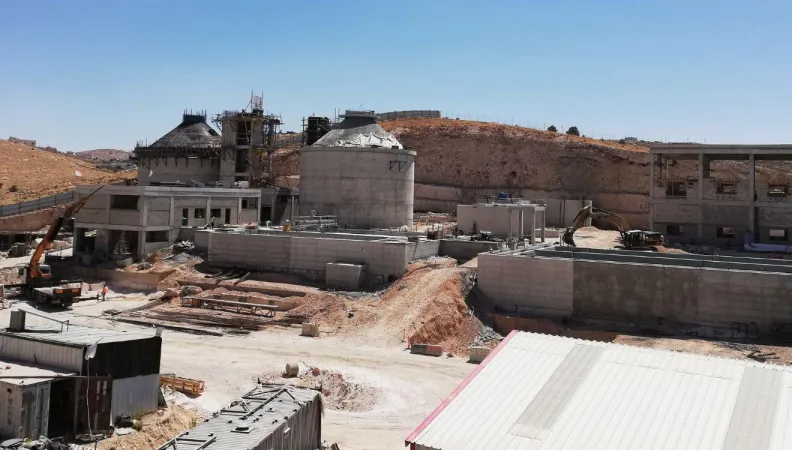Share the page
Hebron Regional Wastewater Management Project
Project
This project is carried out with the support of the European Union



-
Project start date
-
-
Project duration
-
8 years
-
AFD financing amount
-
€ 32 350 000
-
Country and region
-
Location
-
Hebron City
-
Type of financing
-
Partners
-
European Union
-
Beneficiaries
-
Inhabitants of Hebron and Wadi As-Samen
This project is carried out with the support of the European Union

The content of this project information sheet falls under the sole responsibility of the AFD and does not necessarily reflect the opinions of the European Union.
The purpose of this project is to improve health and living conditions for the populations in the area and to preserve the environment and water resources. The project involves the construction of wastewater infrastructures and the improvement of the water and wastewater management by the water service provider.
Context
The city of Hebron, located in the southern West Bank of Palestine, counts 220,000 inhabitants. Whereas 80 % of the population is connected to the sewer, no wastewater treatment follows. Besides, the city, an economic hub, hosts some of the most thriving but polluting industries, namely stone and marble cutting industries and tanneries amongst others.
The wastewater collected in Hebron is discharged in Wadi As-Samen valley which flows towards the Green Line into Israel. The untreated effluent affects both the environment and the population along a 40 km long watercourse.
To address the impact on the Israeli side, a treatment plant was built in 2009 by Israel, partly financed with Israeli-collected Palestinian custom revenues. The Palestinian Authority contributes to part of the plant’s operating costs. For the Palestinian Authority, the treatment of Hebron wastewater is a national priority both in environmental, social and financial terms.
Description
Together with the European Union, the World Bank and USAID, AFD provides financial support to the Palestinian local and national stakeholders to address the aforementioned environmental, social and financial issues. The project includes:
- The construction of a wastewater treatment plant (WWTP) that will treat the domestic effluents of Hebron Municipality ;
- Progressively decreasing financial and technical support to the operating and maintenance costs ;
- Technical assistance for the municipality’s water and sanitation department to provide support so it is set up efficiently and to boost its technical, financial and commercial performance ;
- Engineering services for the supervision of works ;
- Supplementary studies to develop the re-use of the treated waste water ;
- Risk mitigation and accompanying measures to ensure industrial effluents are pre-treated before they reach the municipality sewer.
Impacts
From a health point of view, the project will improve living conditions for the population of Hebron (225,000 people in 2027) and the villages located along Wadi As-Samen (195,000 people in 2027). It will help preserve the natural environment along the watercourse.
Furthermore, the effluent that the treatment plant will discharge into natural environments will comply with quality standards that allow it to be re-used for agricultural purposes.
Finally, the project could have a positive impact on the Palestinian Authority’s budget by reducing the amount that has to be taken from Palestinian tax revenue to cover the cost of treating the effluent that flows into Israel (€17 million annually).


